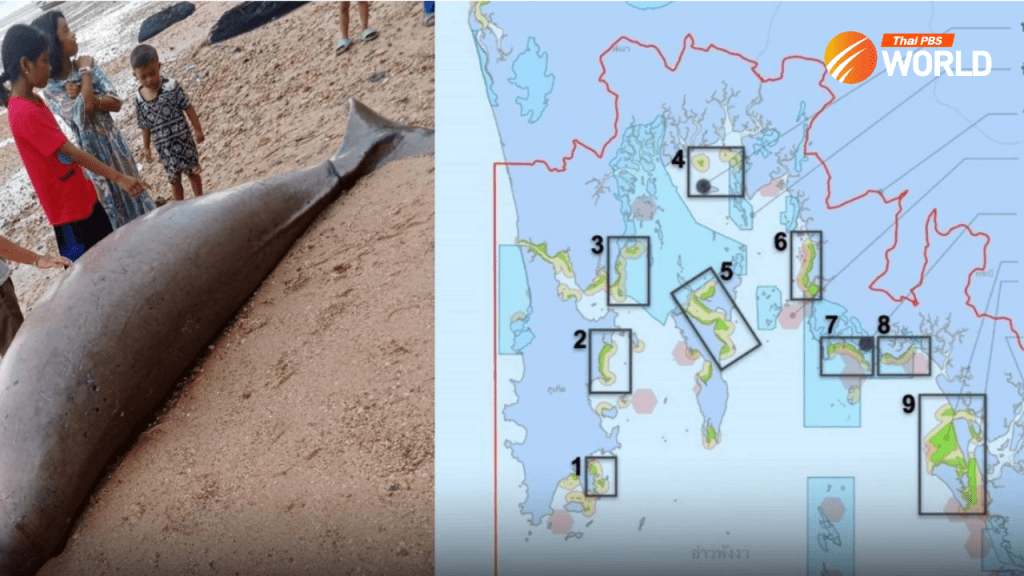Approximately 20 dugongs have perished in Thai waters this year, with four of them dying in the last five days. This has led the Ministry of Natural Resources and Environment to act promptly in order to safeguard the remaining population.
The warming of the oceans has caused significant harm to sea grass in the Andaman Sea off Trang and Krabi provinces, according to Pol Gen Patcharawat Wongsuwan, the minister.
As a result, many dugongs have had to leave their usual feeding areas and move towards Phang-nga and Phuket to find better feeding grounds. However, this exposes them to risks from commercial fishing and other marine activities.
One of the measures implemented by the ministry is to designate certain areas with abundant sea grass or frequently visited by dugongs as off-limits to boats, except when absolutely necessary. Even then, vessel speed is strictly restricted.
Fishermen have also been instructed not to use fishing gear that may endanger dugongs and to avoid fishing in areas where these mammals are often found.
According to Pinsak Suraswadi, director-general of the Marine and Coastal Resources Department, the population of dugongs in the Andaman Sea has increased from 20 to around 280 in the past ten years.
Pinsak and a team of officials visited Krabi province yesterday to discuss with fishermen and coastal communities the best ways to protect the remaining dugong population.
Dugongs are a protected species under wildlife conservation and protection laws, with most of the population residing around Libong Island in Trang province, as well as Muk, Poo, and Lanta islands in Krabi province.









